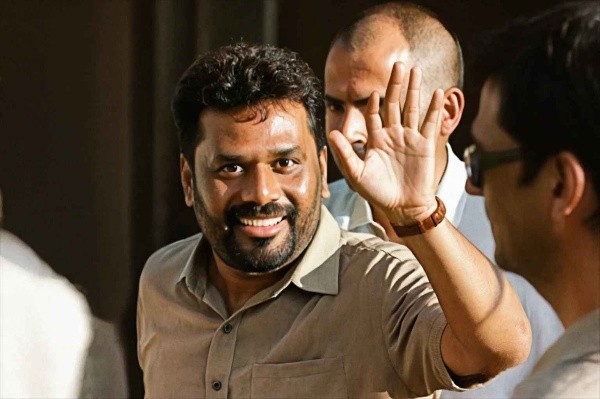Iran’s Plan to Strike Back Against the U.S.
Iran’s Military Preparations Following U.S. Attacks
Loading...

Nation puts faith in Anura Kumara Dissanayake to fight corruption and bolster fragile economy after the worst financial crisis in decades.
A New Era for Sri Lanka
In a significant political shift, Anura Kumara Dissanayake has emerged victorious in Sri Lanka's presidential election, marking a pivotal moment for the nation grappling with economic turmoil. The Election Commission of Sri Lanka announced that Dissanayake, the leader of the Marxist-leaning People’s Liberation Front (JVP) and the National People’s Power (NPP) alliance, secured 42.31 percent of the votes. His main opponent, Sajith Premadasa, garnered 32.76 percent, while the outgoing president, Ranil Wickremesinghe, received 17.27 percent. This election was historic as it required a second round of counting due to none of the candidates achieving the necessary majority of 50 percent.
Dissanayake's Vision for Unity and Change
Dissanayake, 55, is set to be sworn in on Monday at the President Secretariat in Colombo. In his victory speech, he emphasized the importance of unity among all Sri Lankans, including the Sinhalese, Tamils, and Muslims. He expressed gratitude for the collective effort that led to his election, stating, “The dream we have nurtured for centuries is finally coming true.” His call for a “new renaissance” reflects his commitment to fostering a sense of shared purpose among the diverse communities of Sri Lanka.
Al Jazeera’s Minelle Fernandez highlighted Dissanayake's charisma and decisiveness during his campaign, noting that he brings a fresh perspective to the political landscape. With 20 years of parliamentary experience, Dissanayake aims to inject new life into the political arena, promising to address the pressing issues facing the nation.
Economic Challenges at the Forefront
The election was heavily influenced by the state of Sri Lanka's economy, which has been in crisis since 2022. Dissanayake has been vocal about his opposition to the austerity measures implemented under the IMF bailout conditions, pledging to renegotiate these terms to better serve the needs of the populace. His focus on welfare measures aims to alleviate the hardships faced by many Sri Lankans, particularly in light of the ongoing cost-of-living crisis.
Outgoing President Wickremesinghe's administration struggled to effectively tackle these economic challenges, which ultimately contributed to his loss. His association with the Rajapaksa family, who have been widely criticized for their role in the economic downturn, further diminished his appeal among voters.
Filling Political Voids
Experts believe that Dissanayake's presidency will address two significant political voids in Sri Lanka. According to Nishan de Mel, executive director of Verite Research, the first void is the loss of faith in the Rajapaksa family, which has dominated Sri Lankan politics for nearly 15 years. The second void pertains to the shift in center-left politics, as the Rajapaksas have moved the political landscape towards right-wing policies.
Alan Keenan from the International Crisis Group noted that Dissanayake has successfully tapped into the anti-corruption sentiments among voters. His campaign promises a systemic change, raising high expectations among his supporters. As a charismatic speaker, Dissanayake's ability to connect with the electorate will be crucial as he navigates the complexities of governance in a nation yearning for reform.
Conclusion
As Sri Lanka embarks on this new chapter under Anura Kumara Dissanayake's leadership, the nation holds its breath in anticipation of change. With a focus on unity, economic recovery, and a commitment to combating corruption, Dissanayake's presidency represents a hopeful turn for a country that has faced significant challenges in recent years. The coming months will be critical as he works to fulfill the promises made during his campaign and restore faith in the political system.
Editor
Iran’s Military Preparations Following U.S. Attacks
Troops remain in five strategic locations, raising fears of renewed tensions and long-term occupation.
Opposition forces have taken control of the capital after a significant offensive. Here is how it unravelled.
